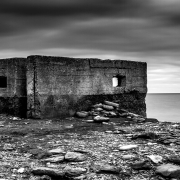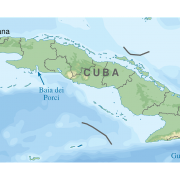What is the Monnet Plan?
Topic of Study [For H2 History Students]:
Paper 1: Understanding the Global Economy (1945-2000)
Section B: Essay Writing
Theme II Chapter 1: Reasons for growth of the global economy
A historical background of the Trente Glorieuses: The French economic miracle
By the end of World War Two, France was badly devastated. Infrastructure such as bridges and railways were destroyed. Industrial output was at 44% of pre-war level. The French had to rely on rationing. Given the urgent need for post-war economic recovery, Charles de Gaulle formed the General Planning Commission on 3 January 1946.
This Commission aimed to raise productivity, improve living standards, restore national production and increase employment. Key sectors were being identified and targeted, namely coal mining, steel, rail transport, electricity, farm machinery and cement. Subsequently, other sectors were included in the Plan, such as fertilisers, oil, shipbuilding and chemicals.
Enter Jean Monnet, who was later known as the ‘Father of Europe’. Monnet was appointed the Commissioner of the French Plan Commission. He came up with the ‘Modernisation and Re-equipment Plan’, which was more commonly known as the ‘Monnet Plan‘.
And the French economic plan became a landmark in the history of postwar Europe, helping to shape the structure of the Marshall Plan, the European Coal and Steel Community, the abortive attempt to construct a European Defense Community, and the Common Market itself. There was a direct line from the Monnet Plan through the Marshall Plan to the Schuman Plan and the Pleven Plan. All of them were, in varying degrees, Monnet Plans.
An excerpt taken from “Jean Monnet: The Path to European Unity” by Douglas G. Brinkley and Clifford Hackett.
A giant leap for France: The Monnet Plan
The Plan aimed to restore France’s production levels to pre-war standards. For instance, Monnet aimed to restore output level that of 1929 by 1948. Notably, the Monnet Plan was not simply a plan to modernise France and bring it back on its feet economically. In addition, the Plan was meant to shape the minds of the French.
The Monnet Plan was integral in accelerating steel production in France. The Monnet Plan aimed to attain an output of 15 million tonnes of steel, which exceeded the peak level in 1929. This ambitious target was to increase France’s international competitiveness, particularly against Germany. In other words, increased French steel exports should replace German steel exports.
The Monnet Plan had become a guideline to French policy towards the reconstruction of Europe as well as to domestic reconstruction. The Ministry of Foreign Affairs had tried to make it so from the outset and to draw out its implications for French national security.
[…] In 1950, at a level of pig-iron output of 7.76 million tonnes the total consumption of coke for all purposes by the French steel industry was 8.14 million tonnes. Of this, 4.66 million tonnes were domestically produced and 3.48 million came from imports. By 1952 pig-iron output had reached 9.77 million tonnes.
An excerpt taken from “The Reconstruction of Western Europe, 1945-51” by Alan S. Milward.
Between 1951 and 1973, France’s growth averaged 5.4% per annum. Compared to West Germany, its economic growth rate was considerably high, thus explaining why its thirty years after World War Two were termed as the ‘Glorious Thirties‘.
What can we learn from this article?
Consider the following question:
– How far do you agree that the post-war reconstruction of Europe can be explained by American aid?
Join our JC History Tuition to learn more about the Global Economy. The H2 and H1 History Tuition feature online discussion and writing practices to enhance your knowledge application skills. Get useful study notes and clarify your doubts on the subject with the tutor. You can also follow our Telegram Channel to get useful updates.
We have other JC tuition classes, such as JC Math Tuition and JC Chemistry Tuition. For Secondary Tuition, we provide Secondary English Tuition, Secondary Math tuition, Secondary Chemistry Tuition, Social Studies Tuition, Geography, History Tuition and Secondary Economics Tuition. For Primary Tuition, we have Primary English, Math and Science Tuition. Call 9658 5789 to find out more.











